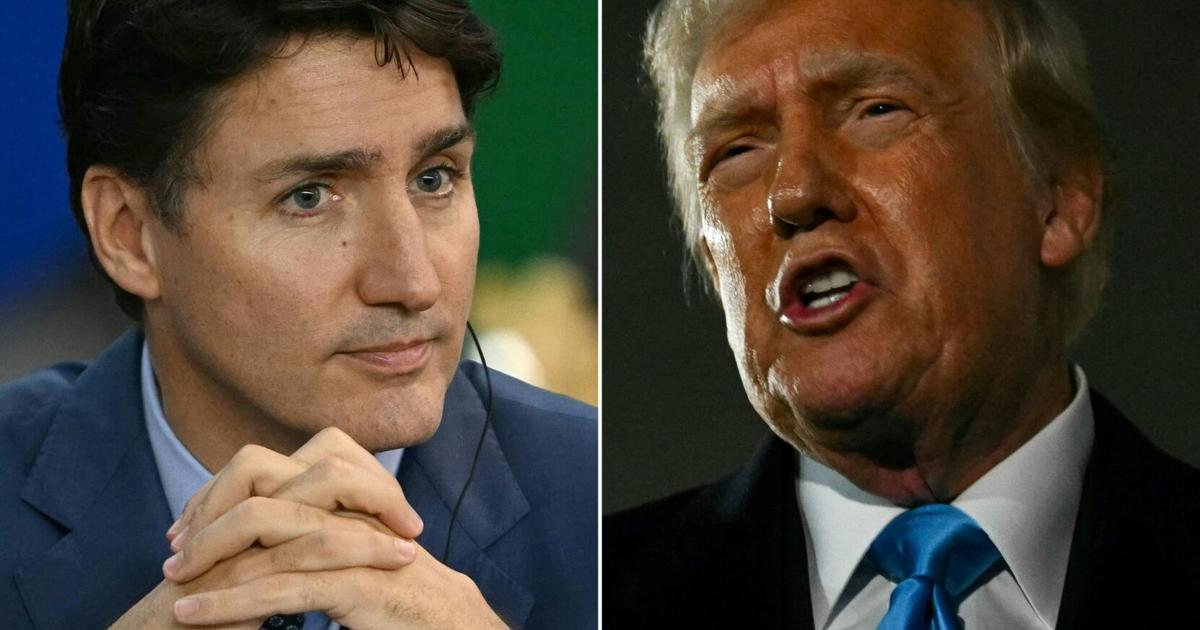U.S. President Donald Trump’s statements about annexing Canada are not a joke, and are driven in part by his desire to see the U.S. benefit from Canada’s critical mineral resources, says Prime Minister Justin Trudeau.
“I suggest that not only does the Trump Administration know how many critical minerals we have but that may be even why they keep talking about absorbing us and making us the 51st state,” the prime minister told a Toronto gathering of Canadian company executives, industry and union leaders behind closed doors.
“They’re very aware of our resources, of what we have and they very much want to be able to benefit from those,” Trudeau said in answer to a question from the floor, after media had been ushered out of the room.
“But Mr. Trump has it in mind that one of the easiest ways of doing that is absorbing our country. And it is a real thing.”
Trudeau continued to talk about “my conversation with” the president, but his comments — inadvertently broadcast after media were ordered out of the session where he had opened the economic summit — were cut off.
A worker was ordered to pull the plug on the speaker after staff realized the session was audible.
The economic summit opened with Trudeau thanking the group for coming to share information and plan tactical and strategic moves for the coming weeks, months and years.
As he finished, the prime minister acknowledged that not everyone in the room is a fan of his, but he welcomed their input.
In the portion of his remarks that were open to the media, Trudeau won applause for stressing the need to drop interprovincial trade barriers.
“It’s about time we had genuine free trade within Canada.”
He said there’s no lack of political will because all premiers say they support the idea.
But, he said, there are “challenges within bureaucracies to say, oh, but it’ll be hard to recognize teaching certificates from one court of the country versus another. It’ll be hard to get proper labour mobility. Or there’s a reason we have a specific tire requirement on our trucks for our province, or a specific need for a first aid kit in those trucks.”
He stressed the need to diversify trade internationally, adding, “Geography means we’re always going to both benefit and be challenged by trade with the United States.”
Nearly 100 industry and trade association representatives, union leaders, Canada-U.S. advisory council members, and executives from across a number of sectors attended the morning meeting, with a plenary session and Q&A with the prime minister and sectoral workshops after that.
The names of those attending were not released, and media access to them was restricted after Trudeau’s opening remarks.
Among the business leaders in attendance were Candace Laing, CEO of the Canadian Chamber of Commerce, Daniel Tisch, CEO of the Ontario Chamber of Commerce, and David Ossip, CEO of tech firm Ceridian. Lisa Baiton of the Canadian Association of Petroleum Producers, and Dan Kelly, CEO of the Canadian Federation of Independent Business, were also in attendance. Charlie Angelakos, vice president of global external affairs at McCain Foods, was also on-site.
Also spotted in the audience were executives with Manulife, Power Corp.’s Paul Genest, Hydro Quebec’s Michael Sabia, TIFF’s Cameron Bailey, Navdeep Bains with Rogers, BCE’s president Mirko Bibic, and Metrolinx head Rob Pritchard.
Mayor Olivia Chow welcomed the participants.
This is a developing story



